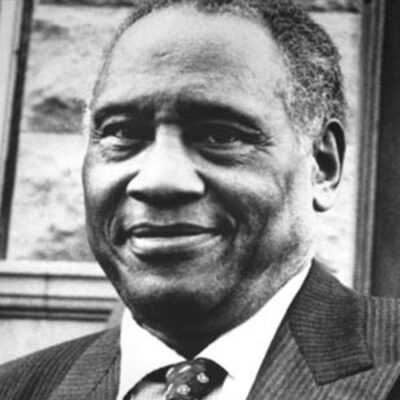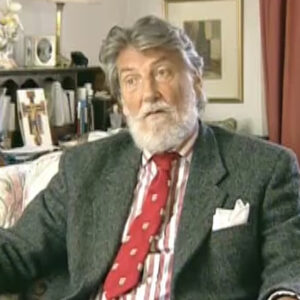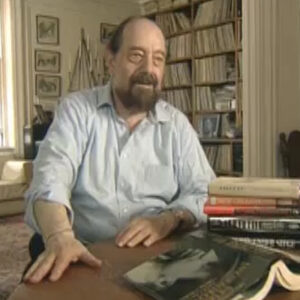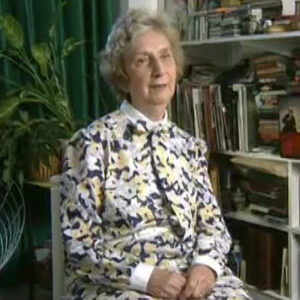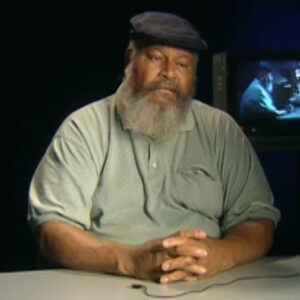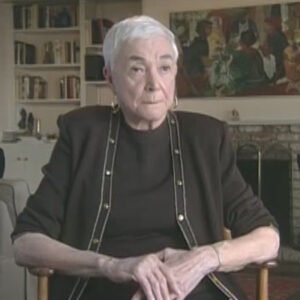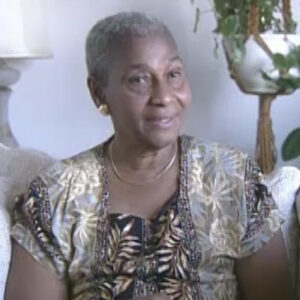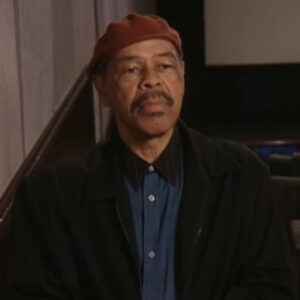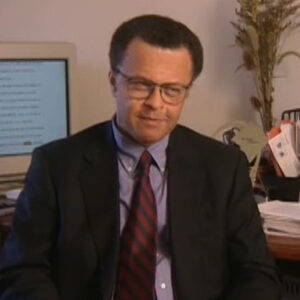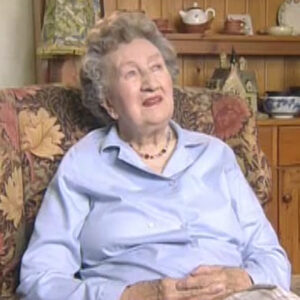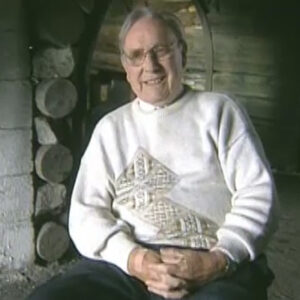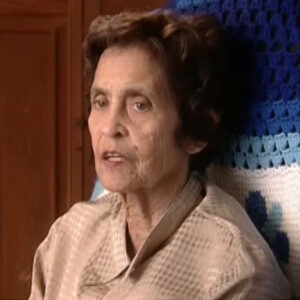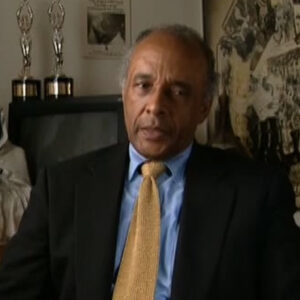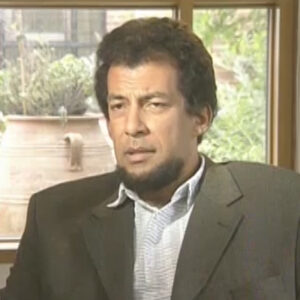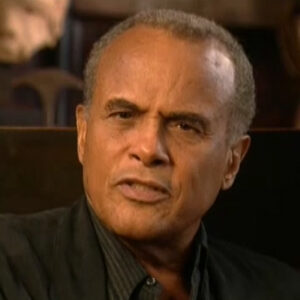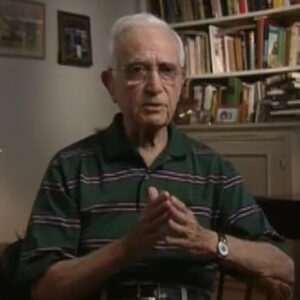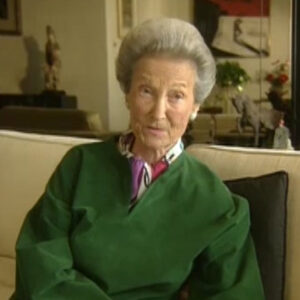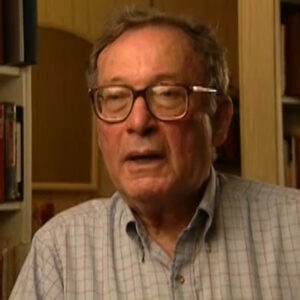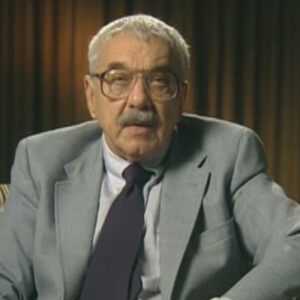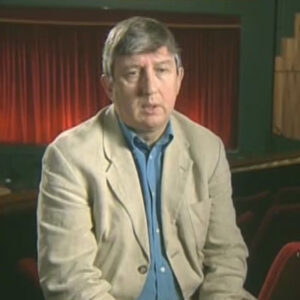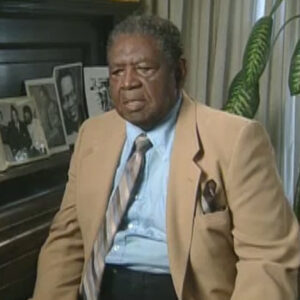Speaker Well, I heard Paul Robeson when I was quite a young man living in the country, and I came out to visit an uncle in London and he took me to see that hair sherbet and well, it was a wonderful experience.
Speaker It all was. And I became a nuisance when I went around trying to Singapore Raab’s. And that had a profound impact on me for a number of reasons are up from the country singer and hearing this great singer. And had you heard of him before as a I just can’t remember now.
Speaker It’s a long time ago and after the after show boat, did you hear him on the radio as well?
Speaker I can’t even remember whether we had arrived. There were probably probably dead. We were a poor family with our cultural back and it was a rather I remember the first one you had that you had a crystal said, that’s all we had. Why did you come to London?
Speaker Well, I came to London, part of my process of growing up. I was my father was a carpenter. He brought seven children in the world are not enough. Well, he died. And my mother, who was a remarkable woman, said Rome, so long as you pass examinations that so and so my uncle, who also was a foreign born so well in order to broaden this war, bring our environment to London for now.
Speaker Were you political? When was the first time you were politically aware? You. Me.
Speaker Well, I grew up my mother was a progressive woman, and we always had a newspaper in our house. My older sisters joined the new first Labor Party. It probably doesn’t mean very much that in that village, in the Labor Party, there were two porters on the railway station who earned my three older sisters were in the Labor Party. And as I say, we read and we had in the house what was then a progressive newspaper. There was nothing else. It was called they all went out of existence or amalgamated. And that was how I was always a progressive forward thinking. Atmosphere in our hearts, but also one of start.
Speaker How was it that you came to go to Spain?
Speaker How was it? Well, for a number of reasons. I came out, got a job while I our. I got a scholarship to the university and I took a degree in chemistry there and I had difficulty in finding a job. But I have got one that, if you like, made me more political and I joined the Communist Party in 1932 and I was then working. And if you are one little town just outside London and trade unionism and left wing politics for the man, I lost the job. So I moved. Still working in Dartford, I moved up to London. I joined the Communist Party after time, very active in all forms of political activity. But essentially it’s fascism that fascism, if you like, made me alive. And I took part in the struggles when Oswald Marisela was trying to invade the east. And at a time when we were protesting, first of all, occurrence Mussolinis war in Abyssinia, Klara’s the Suez Canal, and then above all, our German Nazi fascism and all that. So I became. Not only it and study day to day activity, I was a rank and file member of the Communist Party. And then when the war in Spain began, I was involved. And it was a logical step that I went to. But this was a background. Well, when I say poverty, it was rural poverty, which is different from poverty in the towns it was. And the fact that I, having worked hard, are difficult to get a job, that I got a job. But then all the time fascism was spreading in Europe seemed inevitable. It was Barentu. It couldn’t be stopped. And when the Spanish people this is a part I don’t think we make often enough.
Speaker In Italy, there was opposition to Mussolini very still. Peter, the opposition in Germany, there was opposition to the two to Hitler, but Hitler was able to crush it back in Spain when Franco with the help of Mussolini and Hitler. There was resistance by arms and that lifted up all our spirits and it was almost a natural thing for me to volunteer, to go to fight. And essentially, you learn this through study and discussion with Communist Party, if people are just I was well, I read are attended classes in Marxism and the Marx were more lava and and the day to day work of the Communist Party and the trade union.
Speaker One thing was that was a gradual process that led you to get into the Communist Party or was the one incident that made things clear.
Speaker No, I would estimate it was it was a process from being well born and bred in this rather isolated new forest and then where they are. Well, with a Hakkinen Ostrava culturalist to higher level, there was a progressive atmosphere. We read newspapers and took part in what was happening. We knew what was happening in the world and then university after time. I didn’t join the Communist Party. Then I got in. I was in was a progressive group of students.
Speaker OK, good. Now. How did you get to be the commander?
Speaker Well, I mean, what were you appointed or did you I mean, how does you you’re the leader of the British.
Speaker Well. Everybody everybody started off in the right. And I started off in the Bronx and I was. I went out to spend. At a time the Soviet Union had just sent for anti-tank guns for our brigade and those selected out of the British.
Speaker About 40 of us who were chosen to be trained to use guns and in the first battle took place, which was Hiroshima, I, I was what was called a runner. You ran messages around and I thought.
Speaker At arama as well, I dunno if you are an ordinary rank and file, then the next battle I was in was a Republican offensive to try and cut off the. The fascists who are already in the streets of Madrid, over the river, in the streets of Madrid and their. In the course of that action, the. Commanding officer of the anti-tank battery was killed, wounded, I should say. The political commissar who number two, was made the commander of the 15th Brigade anti-tank battery and I was married to a political commissar. That was my first step. And I fought then in the battles of in the Arakan Balcatta as the political commissar of the anti-terror battle. Then they decided it was decided that I would move to the infantry. And at first, for a short time, I was the assistant in command. And then before the battle of the of Tarong, I was married the commander of the British battalion.
Speaker Compared to the general population of Britain. Uh, what was the general opinion? About Spain and fascism. I mean, did did you and your friends, did you have support of most people or were you basically alone at first?
Speaker It was not seen as a key issue. And part of the hard work of the International Brigade was to provide a focus in Spain as well as cost fighting, but to provide a focus, so there was built up by experience and knowledge, a big one of the most powerful movements ever seen in this country, the aid Spain movement, which took many forms. It was political in the sense that the Conservative government had a Tory government, first of all, Baldwin, but then Chamberlain. Was the chief instigator of a policy of non-intervention. We will not allow either side to buy weapons. And so that was the decision. His friends. Hitler and Mussolini, they provided arms, but the Republican was unable to buy weapons, and so the AIDS free movement was political change, the policy of the Tory government. It was also such a broad movement for new or the people know, increasing their knew that they were short of food, they were short on medical supplies. And so there was this broad movement, political, humanitarian, collecting medical supplies and giving support to the international brigade. And so that we were fighting everyday people were sent home, especially those who are badly wounded, to go round to meetings, to raise funds to win political support. And that was always saying that we were saying we can win Inspiron if we’ve got a weapons.
Speaker Now, do you know how Paul Robeson found out about Spain?
Speaker I mean, do you know how he got there? Not physically, but how in his mind?
Speaker Well, when Paul. Came to Britain, and I only know this if you lot afterwards when he came to Britain, he was very conscious of the race question. Very conscious, but he was not involved or understood, if you like, trade union politics and all Marxist politics. And so this is what I’ve heard and learned. He met. Leading people in all fields. So that was a very rich. Left wing cultural life, then poetry, music, drama writing and so on, and he met leading figures and they influenced him. He also met trade union leaders and influence and he also met Marxist. In left wing politics, they also met the Labor Party, known Marxist politics, and they had well, he had a big effect on them, but they all remember all you know, there are wonderful discussions I had and so on. And so increasingly he became. More and more understanding and deeper and deeper into political life. I know it said he had contact with Fabians. Well, he did because the Fagan’s and were the intellectuals in the Labor Party. But he also had deep and growing contact with people like Harry Pollard, who was the general secretary of the Communist Party. Will Galica, who was who later became a member of parliament for as a communist. And he met trade union leaders. And that, as I I only know, as I heard a lot from people and amongst the people that he met and they had a profound influence were the leaders and the activists and the AIDS movement. For example, he he became friendly with John Gibes. Holdren, who was an outstanding scientist, but a Marxist, hear from them, from him who became friendly with Charlotte Holdren, who was the well, her son was inspiring, but she was also the secretary of the Dependent’s Aid Committee that collected funds. And so this was a wide picture of contact where aspiring. Attracted Paul and Paul helped the Spanish struggle.
Speaker You know, that’s the first time that I’ve heard clearly now how he got there. We’ve interviewed a lot of people, but I’ve never heard it precisely. So that was good. I knew I was good.
Speaker OK, well, that’s how I felt. How well, afterwards in a different relationship.
Speaker Yeah, OK. What I want to know now is and I don’t know if you if you knew about this when you were there or if you found out about it later, but. What was his effect on the people he met there?
Speaker I mean, did he did he travel and only talk to the offices or did he talk to the men or I mean, how did that work? You know, because you weren’t there, but I guess you heard afterwards, on the contrary, our.
Speaker When Paul came out to spy and that was in in the party, there was Paul, his wife, his land, Charlotte Hall darling, who was, if you like, well, contact person, she news. And then, hey, Paul was given an officer to if you are to take him out and show him the ropes and. He made a point in speaking to ordinary people, ordinary soldiers and at every opportunity, and he was speaking to the lads that I are you which Icelander wrote about, he not only spoke to soldiers, but he also made a special line in speaking when he was in Terrazzano, which was a training base, and speaking to soldiers, men that he’d already met in the anti-racist struggle back in the states. And and also he then he wanted to go to the front, the whole of the 15th Brigade that was English speaking. Well, when I say English speaking, it was the British. And we call we were called British and even worse in Spanish, we were called the Battalino Anglaise, but we were English, Scottish, Irish, Welsh and Irish, but also Cypriots are Hong Kong, Egypt and South Africa because it was a British Empire. But they lumped this all together and called us the potato. Well, the official was a British battalion or the battalion INGLÊS in Spanish. But and Paul, besides contact with the 15th Brigade, he also visited Unsane in the hospitals and their. If you spoke to everyone who was in Spain at the time, it all said, we remember Paul Robeson coming to us and he spoke to me right in the front of the bed. Well, because his reputation was such and his impact of those who were lucky enough to be there in our well, every soldier exaggerates a bit. And Paul was always the center of the focus of our interest.
Speaker And this is this is the picture that most people know about. Yes.
Speaker About all is that he actually go out into the field and sing like this, that that picture and not no one can say where it was taken. It was certainly taken note of the fact Paul wanted to go up to Toronto where we were fighting, and there was a very bitter battle there. But the well, who decided? I think it would be the top level of the government. And they decided, I think, the combination of two reasons he was too valuable here, it was a dangerous place, it was unpleasant place, and also because the movement to the battlefront itself was very dangerous. Roads were twisted. There was a foot of snow. Their clothes were plunging over the river into the cliff and even travel to the front. The terror front were dangerous in itself, but the battle itself, because at that time, the republic had scored a major victory. A psychological victory as well as a political victory. It was taken captured from Franka by Spanish Republican troops. We were told that the international brigade were held in reserve. To deal with the inevitable counterattack came, Franco always had overwhelming superiority in weapons, German tanks, Italian planes, trained German and Italian soldiers. He always had the preponderance so that we could make an initial advance, then came in the more powerful. So we fought back very, very tight. You a long way, but in the end, it’s all right for the tank and the planes which force you back time after time after time. That was a picture. Bribery conviction, willingness to accept losses, but in the end, Frank, as you know, after three years. And I don’t think we can stress this often enough, the Spanish people with the help of the international held back Franco, Hitler and Mussolini for nearly three years. But when Hitler attacked in World War Two across through France and Belgium, he got to the channel like a dose of salts, which you got through that. And that’s why we’re always proud of the Spanish people and our part that we held the front front where the world developed a new understanding of the character of fascism. You’ve got to stand up and fight and you can win.
Speaker When Paul went back. To me, when he left sorry, when Paul left Spain, but what did he do?
Speaker Well, Paul Van. And he made a number of very positive statements that Spain was one of the key. Periods of his life, he said he felt at home. He saw that a people. Of all, because Spain is not one with one group of people, it’s not nationalities that they were able to get together and establish common unity and common poles. And there was a complete, if you like. People of all all colors, all races were able to integrate, find a common purpose without discrimination and the three pointed star of the international guard, I’m sure you’ve seen it, if you like, yellow, black and white shirts, that integration, which was. Sharon, not only in the international regard, but Sharon in Spain itself.
Speaker He made he made other speeches, other places where he said, OK.
Speaker Oh, yeah, well, so when he left when he came back to Britain or I’m outside Britain because he was married in England and Wales, he almost placed himself at the disposal of the AIDS brain movement, almost placed himself at the AIDS movement.
Speaker And as far as the International Brigade was concerned, there were two high points.
Speaker First.
Speaker When we got back the bridges, you know, we were asked to leave sparring partner Green and there was an official local arranged in London in the Empress Stadium, which is one of the biggest holes it was. I got a program of the event and. There it was packed out, all the international observers marched in. And there was music, there was singing, there was a choir and so on, but the poor robes and then sang and there was an enormous collection.
Speaker And from that. Welcome back to the brigade with the help of the collection. Then we started.
Speaker A convoy to the war in Spain was still going on, it was desperate and we sent out a convoy full of the guiders, couple of nurses, a part of it, and they went all around the country speaking, raising money, but saying above all and non-intervention, and we can still win. And Paul’s sendoff at that concert in the NPR stadium gave the desperate last minute lost hope a new lift. The other thing where he sang was.
Speaker When the Welsh blockaders went back and Caporale already had very close ties with Rial’s. There was a meeting was held in the current value, not the Ronder, it’s important in a place called Mountain Ash and the biggest hole that I had there was the pavilion.
Speaker The figures vary according to the move, 6000, but it’s certainly the whole valley came in.
Speaker Paul had an influence, but also the International Brigade had a profound influence there because remember in Spain.
Speaker We knew we could fight, but it was the change of political policy in this country, and so the lads were, if you like, that it did it naturally, but they encouraged you were given sort some writing papers.
Speaker And in the in the current valley, which includes Aberdare, the local paper that Aberdare leader used to run a weekly column of letters from our lads in Spain. So there was this deep tie in that valley and people came up from Cardiff. There were already Spanish. There were the bastard children who were there. There was a Spanish colony who had come over to Wales much earlier. And it was the whole of that part of Wales came to that return that welcome home.
Speaker There was another effect that you mentioned earlier before we started talking to you about the monuments and everything around the country.
Speaker Well, a poll went all around the country and he sang. Well, almost when I say it, almost everywhere, I can’t well, there do exist records, but I certainly have never compiled a partner going wherever he went. He had a profound, twofold effect, a political impact for the spirit he gave. He broadened the understanding of what was happening in the fight against fascism. But he also left behind left behind a spirit which lingered on. If you go now and. Well, I. I’ve had to travel quite a lot. People my own age or younger people will tell me, oh, my dad took me to hear Paul Robeson speak, I shall never forget it. That was the lasting effect. And that, in effect at that sort of impact still remains in villages where perhaps there was only one dictator went. But now there’s a little memorial stuck up and as a matter of fact, there’s a slight current village up in North Wales where they speak only speak Welsh. There was world they speak English as well. But Welsh is a larger language. Well, one lady went.
Speaker He was killed, but. He the village was divided.
Speaker But not in the village in the next place. There was a memorial put up. And Paul Robeson had an impact that after a long debate, was it correct that a young man should give his life for far off? They decided yes. And the impact of Paul Singer, not in the village, but everybody went to hear him and.
Speaker That is this little slight foreign village, no slight scar during our dead. That’s a type of impact he had at the time, but then has lost it on a memory, but also the building of these memorials.
Speaker And there are quite a few miles on the ground.
Speaker Ah, yes, they’re on their own garden that there this book we were speaking of 65, but now there there’s one and it’s gone up since my own place. There is going to be up in the shopping center and so on.
Speaker And so they’re on tour, we hope for a to Islington and so on. And you, of course, have seen a memorial in the Jubilee Gardens.
Speaker If you could just say for me, there are many, many, many memorials, something like that. I just need it for the film. How if you could just say there are there are many memorials in this country where there are already.
Speaker I know of 68 memorials. And they are still going up.
Speaker We produced a book called Memorials of the Spanish Civil War.
Speaker We could only take five 65 five at that time. Now the new ones are demanding a new edition and expanded edition of our book. Whether well.
Speaker Um, now, finally, where you were at the Porcaro Transatlantic Cable Telephone concert, guess what? Could you just sort of tell me what that was like emotionally and.
Speaker Well, I was at the time, I was. The secretary of the Wealth Communist Party and as such. You couldn’t be a communist in South Wales without being closely involved with the miners trade union will painter himself became. First of all, the secretary of the South Wales miners, then he became the national secretary of all the miners of Britain, a number of international leaders became full time officials in the miners union. There was. I say Jack Jones, rondout, because there are numerous Jack challenges, he became the minors agent for the Rhondda, another one became the minors and Welchman became the minors agent in the Somerset mine in the control of the old guard.
Speaker Now there is another one became the minors agent up in Canada. So the South Wales miners international providers almost became the through the counter force all over Britain in the National Union of Mineworkers.
Speaker And and the concert.
Speaker You can tell me about the car in the concert world.
Speaker We went to my wife and I her why was it why was it done? Why was the constant.
Speaker Weren’t they why was it done? Well, Paul had these very close ties before. If you are if you are almost before he became so deeply political and then that tie with whales intensified when he made the film.
Speaker When he made the film. When he when he made the film and then he wanted.
Speaker And the world’s wanted him to come back. He couldn’t come back because the United States government wouldn’t allow him his passport. And so who came up with the idea?
Speaker I don’t know. I strongly suspect.
Speaker Well, Palantir and the assistant, a man called Didon Evans, who was a very deeply colorful man who was the driving force in the Irish Deadwood’s anyway, they came up with this idea of the link-up.
Speaker Hoping it would bring pressure.
Speaker On the American government and would give a stimulus and a focus point for what was already a wide movement wider.
Speaker Let ropes and come back. To the United Kingdom, and third, the idea was hold out, it was organized very effectively and efficiently and there was well, it’s impossible to describe for me to describe the emotion. In the hall and the freedom, and it was so it was so vivid, it was so real technically it was a marvelous link-up and.
Speaker There were. Men, there were women, they were children, but there was scarcely a dry eye in the place.
Speaker I don’t cry very often. My wife cries more more often than I do.
Speaker But we both cried and we both came out stimulated too well to do more to get Paul Robeson’s passport back.
Speaker That was that was it, an all world first was the traditional center for the Eisteddfod. More than that, for the annual conferences of the South Miners Federation, but also when our meeting was called to discuss policy and so on.
Speaker So Porthcawl, which was the if you like, the the base of the valleys because you know how the valley is spread out there.
Speaker And so that was a place rather than cadres.
Speaker And we had a bookshop in South Wales which sold world boxes, books. Apparently, there are cultural books as well.
Speaker My wife was responsible for the literature in that time in that in the south where was minors, although we didn’t have a stall, nor I said, but there wasn’t room for.
Speaker OK, let’s start from. He was asked about three questions.
Speaker Well, first of all.
Speaker First of all, on nonintervention. Well, right from the first word.
Speaker From the first shots being fired. We face the reality that Franco had his arm. Who, by and large, went over. The republic had nothing. Few weapons if you try and burn. Then.
Speaker Franco would have could have been defeated, would have been defeated if it had been left to the Spanish people in Madrid, in Barcelona.
Speaker Our take five out of the seven main cities, the people unarmed, heavy losses, not with conviction and weapons. Echogram took control of their cities, but then Franco had.
Speaker In Africa, the trained mercenary. Army of Africa. They were mercenary, they’d been used for colonial repression, the Navy, the Republican Navy had joined. The republic, they controlled the Straits of Gibraltar, but.
Speaker Franco appealed to Hitler fly my army of Africa from one side over the Straits of Gibraltar and land them in Syria, where he managed by trickery to take the time.
Speaker And from then on the whole, this flight, the provision of arms was done with the connivance and agreement of the non intervention committee, instigated and led by the British conservative government, but backed up by the French government.
Speaker And so we were clear right from the word go, right from the word go, if we could change that situation and the republic could buy the weapons which so badly needed, we could not only hold Franco, but we could also hold the German and Italian troops who are coming in to fight on the side of Franco.
Speaker We were absolutely convinced. And so all the time, everyone. The international providers, but also the growing understanding in this country that non-intervention was appeasement of fascism and it had to be ended. It had to be fought. It was a political battle. And although I’ve emphasized perhaps unduly how Powell’s presence reflected the spirit, it was a political spirit. Besides Paul singing, there were always political speakers arguing against non-intervention. There were demonstrations. There were marches. All the time are bringing pressure to bear on the conservative Chamberlain government and non-intervention. And we were also able to move on.
Speaker Our slogan was also.
Speaker Save Spain, save peace. We knew that if Franco won in Spain with the help of Hitler and Mussolini, they were not content to stay there and would be facing the bombing here when.
Speaker When the German planes bombed Guernica, the slogan, the bombs on Spain today rained bombs on London and Paris tomorrow. That was a slogan, sir, that not only anti antifascism, but bringing home the danger of war to the people in Britain. And so this was where money was needed for the bus, children and so on.
Speaker But they weren’t singing and dancing. But they also all over this political message, we want to go home. And that’s why we’ve got to defeat the Spanish fascist in order that we can tell her you weren’t you weren’t we?
Speaker Were you at all concerned about children?
Speaker No, I wasn’t.
Speaker I think that. Yeah, that’s true. Yeah. Yeah, but.
Speaker It was illegal to leave this country to go to fight in Spain, the very British government under the non-intervention found in the dusty shelves of the Foreign Office, an act of parliament, 1875 that.
Speaker The Foreign Investment Act, it’s illegal to leave this country to go to fight for a foreign power. So we had to find a way round and we got there, but recruiting, travel, collecting of the fans and the tickets escorting down through France was illegal, going over the Pyrenees, all that was illegal.
Speaker And Paul, there is no. He would never, ever have been involved and risked his standing in that. It was done.
Speaker He knew about it. Everybody knew about it. The police knew about it. But it was illegal and.
Speaker Well, in this country. We were, if you like, criminals, no one was ever prosecuted, even when we got home, because World War Two was right around the corner. I’m ready to bring the government authority would have been deeply ideological if Spains had been one.
Speaker Do you think that would have delayed or prevented the Second World War? Well.
Speaker When you talk about history, you can never be certain, but I am. Sean myself.
Speaker That the defeat.
Speaker Of Franco with his allies there, first of all, it gave a breathing space for people to understand the character of fascism and refractions philosophy. It’s a medieval philosophy, but he’s got one. And in this country, powerful propaganda. Newspaper editors were saying fascism brings order to the country. There’s a famous quotation in The Daily Express that Mussolini made the trains in Italy run the time. So the war in Spain, three years. Don’t forget, gave a breathing space for the understanding of the character of fascism, the propaganda of what fascism could do to the civilian population, deepen this understanding. So the spirit of hatred of fascism, the spirit of resistance to fascism, and above all, the feeling that fascism could be checked, spread throughout Europe.
Speaker Not in time, not in time, but near enough. And. Well, the French Resistance. The Belgian resistance, even in Germany itself, the antifascist resistance was there all the time, and initially, of course, there was much stronger.
Speaker And if you like, we were able I was in in the British army, if you like, from mountain to mountain for all the time.
Speaker We were getting the resistance fighters coming in, joining in, clearing the next mountain.
Speaker And I felt more at home than we were in snow in the high mountains.
Speaker What about.
Speaker Um. What was your relationship? And was there a special relationship of Paul Wellstone to the American Abraham Lincoln Brigade? Do you know them?
Speaker Well, again, I have only read about it, but they are.
Speaker Well, let’s put it like this, we’ve got a rough time when we got home, right, to return discrimination in a British way, we were.
Speaker Well, for example, I did I did get from promotion. After.
Speaker Churchill had allied with the Soviet Union and began to fight, are gone, but I was allowed through the outstanding men were discriminated against and not used in World War Two. The Americans got much rougher, you know, and.
Speaker Two things. One person or one general.
Speaker What did the Wilson have any particular special effect on you as you look back in your life? Did he have any effect on you? I mean, what are your thoughts about him generally for you?
Speaker Yes, because I haven’t really touched with this.
Speaker When Paul came back to Britain and when the problems of his health began, his relationship with his land became strained. He was born well, he worked closely with the Communist Party, and I was then the assistant general secretary based in the headquarters and their messages or arrangements to be made.
Speaker And so quite often I went to his to his place where where he was. I it was not far from the Marble Arch. So I went round. You were always greeted warmly and friendly and treated. If you like, well, I was.
Speaker I’m not Darren and Paul was a figure out there, but so I always remember that and then in the social occasions where he sang, I told Robert singing at the siefert, he emerged.
Speaker He was a figure of great dignity. He he never bragged.
Speaker He spoke to everyone. He was a simple but impressive figure. That’s the impact he had on me personally.
Speaker OK, now, just as a part of that, what did you did you sense the depression when you saw him after he came here? You saw him a lot. Yes. Did you think that he was, like, sick, or did you sense that he was depressed or. Well, at that time?
Speaker At that time, he was being looked after.
Speaker A man called Harry Francis was one of those who formed the musicians union and.
Speaker Deliberately, it wasn’t talked about. Was kept very quiet.
Speaker No one talked about it except the most, if you like, people who wouldn’t gossip and drive. So we followed. With concern. And a certain feeling of impotence. What could we do, you know, to help him then? And that was my. Impression from our figures in that period.
Speaker Do you do you have any thoughts about why he might have been depressed? And it’s hard to say, but do you think it was a result maybe of, you know, all the pressure or do you think he was physically ill or or a combination of both?
Speaker Well, I have no position, I have heard about the various stories and theories, I have never.
Speaker And or tried or attempted in any way to talk to the people who were trying to help him in this wire all the time.
Speaker All I know is that through the people he was who were in that contact, who in a way kept this secret as secret as possible, I’m certain it wasn’t talked about or discussed, but I know how sad if you are, but also not knowing what could be done.
Speaker That’s my dad. That is my memory and my feelings about that period.
Speaker What what do you.
Speaker His legacy was an outstanding individual. Talented. Intelligent.
Speaker Courageous, but he was prepared to put on side they on one side for a second.
Speaker OK, if you could just repeat the legacy and what we can learn from Paul.
Speaker Well.
Speaker The legacy of Paul Rabson. He was an outstanding figure. Of the period. He was outstanding in many, many words.
Speaker Hey, commander. Extreme intelligence. He combined. Artistic ability.
Speaker He combined Freeling for fellow men. And women, and he also Freeling especially for oppression of people in the course of his life. He showed his ability to develop his understanding he wasn’t a static character, he grew up in his life. And all the way through. He was a man who said other careers, wells, wide acclaim. Possibly more artistic satisfaction is open to me, but I am going to take the path where I can give the maximum help. To. Those oppressed by racism there is oppressed by fascism and those who suffer in war.
Speaker I would say he was a man.
Speaker Who?
Speaker Who’s prepared to sacrifice himself for the good of the human race?
Speaker OK, one just technical thing, what exactly what? Well, who are these people in this photograph?
Speaker I mean, we’re. The dead are. There is. By the way, I got a spare copy, if you’d like. Oh, yeah. This. Was taken somewhere in Spain. And I challenge anyone to say the precise geographical location. That because, well, I was in it and because I’ve studied history sense, I can say certain things about it. First, this unit was not from the international guard, it was some other unit of the Republican Army. And don’t forget, we only a tenth numerically of the Republican Army. They were fairly recently new form that got wonderful uniforms. New uniforms are way after years being a front and slept in or out in the dirt. We were very scruffy. The rifles they’re carrying are Soviet made and they haven’t had them very long because the Soviet rifles and how pleased we were to have them compared with a crap First World War that we came with, they had a long bayonet which got in the way and we tended to lose them. And also that survived because one man that is holding our little Soviet maxim gun on a bipod, they did not come to us until the middle of nineteen seventy seven. So that’s my estimation.
Speaker But it’s a lovely photograph because everybody thinks that this is the the the Abraham Lincoln Group or, you know, whatever. In America, people think it’s American. Never, ever.
Speaker They are Americans even and the training base that’s at Terrazzano, where he met them, where he met them, but they were not equipped with blankets, with new rifles and a tripod. Now it’s a Republican and a newly formed Republican unit. And it’s a tribute to Paul that he sang.
Speaker He sang when he got the chance. So as far as the dance to don’t make anything of it.
Speaker It doesn’t matter, we get the other guy.
Speaker Well, I know we fought together, the brigade staff was half right, varied all the time, half from the United States, half from from England, from Canada, and, of course, from Spanish, because they all international guards were made up. Two numbers by Spanish volunteers.
Speaker Was there any special was there any was there any.
Speaker Did you have any much interaction with the Americans in your brigade? In other words, Abraham Lincoln?
Speaker Oh, yes, there was this close we fought side by side at. Let me say well, first of all, the brigade commander of this brigade was. Our Yugoslav.
Speaker Chipwich.
Speaker And then he stayed there. He’s good English and so on, and then the chief of staff, that that’s the top job. In the staff, there was a married man who was American. That was Steve Nelson, actor who was at at. And then there was Malcolm Dunbar, who was English. And then, of course, later on there was a Spanish. So they are in the brigade staff. There was a mixture of Americans, British, English or British outside British, because there was Scotchman and Welchman as well, but also Spanish. So all the time we were mixed up and they were fighting well in the last battle. In the last battle, a war was fought in Spain, I wasn’t there, but I know the layout on one side.
Speaker Were the Clintons, they were forced to retreat on the left flank of the British, there were the Canadians, the taps, and we were in the middle where we’ve gotten a tremendous battering. So it went on. The medical services are both.
Speaker At frontline level and in the hospitals were completely integrated there, American surgeons are well present, good health to the fact that an American surgeon who served in World War Two came along a doctor. And I saw I was hemorrhaging badly. And he came along and I was, well, everyone. So I had it and he said, pull that bloody bandage stuffed into my arm. And he pulled out. I didn’t call me that.
Speaker So I doesn’t have another hemorrhage. Your liver. Anyway, it was pulled out and I’m still around the law, but.
Speaker Did you ever meet? Oliver, did you ever meet him?
Speaker No, I can’t. Well, I don’t remember him. This is you know, this is a tribal people. Are people that while many of the people are not inspiring when we met afterwards. Well, anyway, I read of their deaths in the American volunteer for literature in our society where he’s gone. Our new Steve Nelson very well. And he he came and stayed with us. And round the corner was also another well-known American communist who was expelled and sent over here, Johnny Williams. And he was involved in the in the McCarthy art trials. I was in jail with a lot, and as I said, we. We were part of our way and the BROCADED Association, we ran a campaign against the persecution they suffered from the Americans, which was much more. Worse and more vicious than we experienced here. It’s not worry. So we run a campaign here in.

